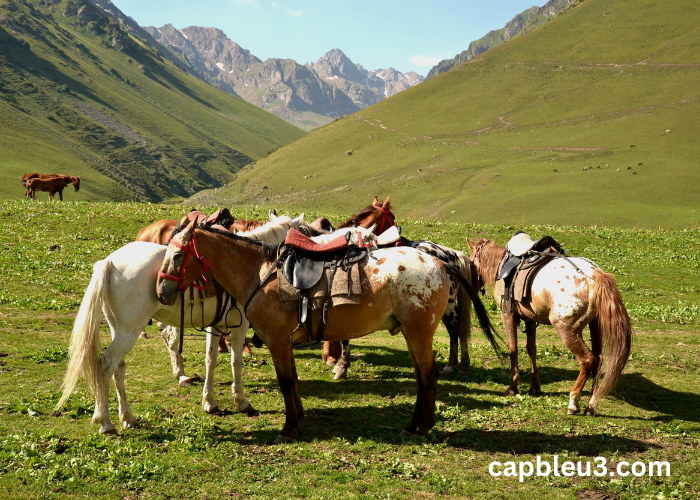
For centuries, the horse has captivated human imagination and played a pivotal role in the development of civilizations. From ancient battlefields to modern-day equestrian sports, horses have been indispensable companions to humans. This article delves into the history, biology, and cultural significance of these majestic creatures, highlighting their enduring legacy. Discover the best horse racing tips and information on France Cheval Turf. Get expert insights and analysis to improve your betting strategy.
Historical Significance
The domestication of horses, believed to have occurred around 4000 BCE on the steppes of Central Asia, revolutionized human society. Horses enabled unprecedented mobility, allowing for the expansion of trade routes, the spread of cultures, and the conquests of empires. The chariots of ancient Egypt, the cavalry of Alexander the Great, and the knights of medieval Europe all relied heavily on horses.
In the Americas, the reintroduction of horses by Spanish conquistadors in the 16th century transformed indigenous cultures. Native American tribes such as the Comanche and the Lakota became exceptional horsemen, using horses for hunting, warfare, and transportation.
Biological Marvels
Horses, belonging to the species Equus ferus caballus, are large, powerful mammals known for their speed, endurance, and intelligence. They have evolved over millions of years from small, multi-toed ancestors to the single-toed animals we see today. This evolutionary journey has equipped them with unique adaptations, including strong, lightweight bones and a highly efficient cardiovascular system.
Horses have keen senses, particularly their eyesight and hearing. Their eyes, among the largest of any land mammal, are positioned on the sides of their heads, giving them a wide field of vision. This, coupled with their ability to detect even the slightest sounds, makes them highly alert and responsive animals.
Breeds and Varieties
There are over 300 horse breeds worldwide, each developed for specific purposes. Thoroughbreds, known for their speed and agility, dominate the world of horse racing. Draft breeds like the Clydesdale and Shire are renowned for their strength, historically used in agriculture and heavy labor. Arabian horses, with their distinctive head shape and high stamina, are prized for endurance riding and their influence on other breeds.
Ponies, though often mistaken for young horses, are actually distinct breeds known for their smaller stature and robust build. Breeds like the Shetland and Welsh pony are popular in children’s riding and therapeutic programs.
Cultural Significance
Horses hold a special place in human culture, symbolizing freedom, power, and beauty. They appear in countless myths, legends, and works of art. In Greek mythology, the winged horse Pegasus and the centaur Chiron stand out as iconic figures. In literature, horses feature prominently in stories from Anna Sewell’s “Black Beauty” to Michael Morpurgo’s “War Horse.”
Equestrian sports, ranging from dressage and show jumping to rodeo and polo, showcase the versatility and athleticism of horses. These events not only celebrate the animals’ capabilities but also the deep bond between horse and rider.
Modern-Day Roles
In contemporary society, horses continue to serve various roles. They are invaluable in therapeutic settings, helping individuals with physical, emotional, and cognitive challenges through equine-assisted therapy. Their calming presence and gentle nature make them ideal partners in these therapeutic endeavors.
Horses also play a crucial role in law enforcement and search-and-rescue operations. Mounted police units patrol urban areas, crowd control, and ceremonial duties. In rural and rugged terrains, horses assist search-and-rescue teams, providing access to areas inaccessible by vehicles.
Conservation and Welfare
Despite their prominence, horses face numerous challenges, including habitat loss, neglect, and abuse. Organizations worldwide are dedicated to the welfare and conservation of horses, advocating for responsible ownership, humane treatment, and the protection of wild horse populations. Efforts such as rescue and rehabilitation programs, as well as sanctuaries, work tirelessly to ensure that horses receive the care and respect they deserve.
Conclusion
The horse, with its blend of strength, grace, and loyalty, continues to be an enduring symbol of human civilization. From ancient battlefields to therapeutic arenas, their contributions are immeasurable. As we move forward, it is imperative to honor and protect these magnificent creatures, ensuring that their legacy endures for generations to come.